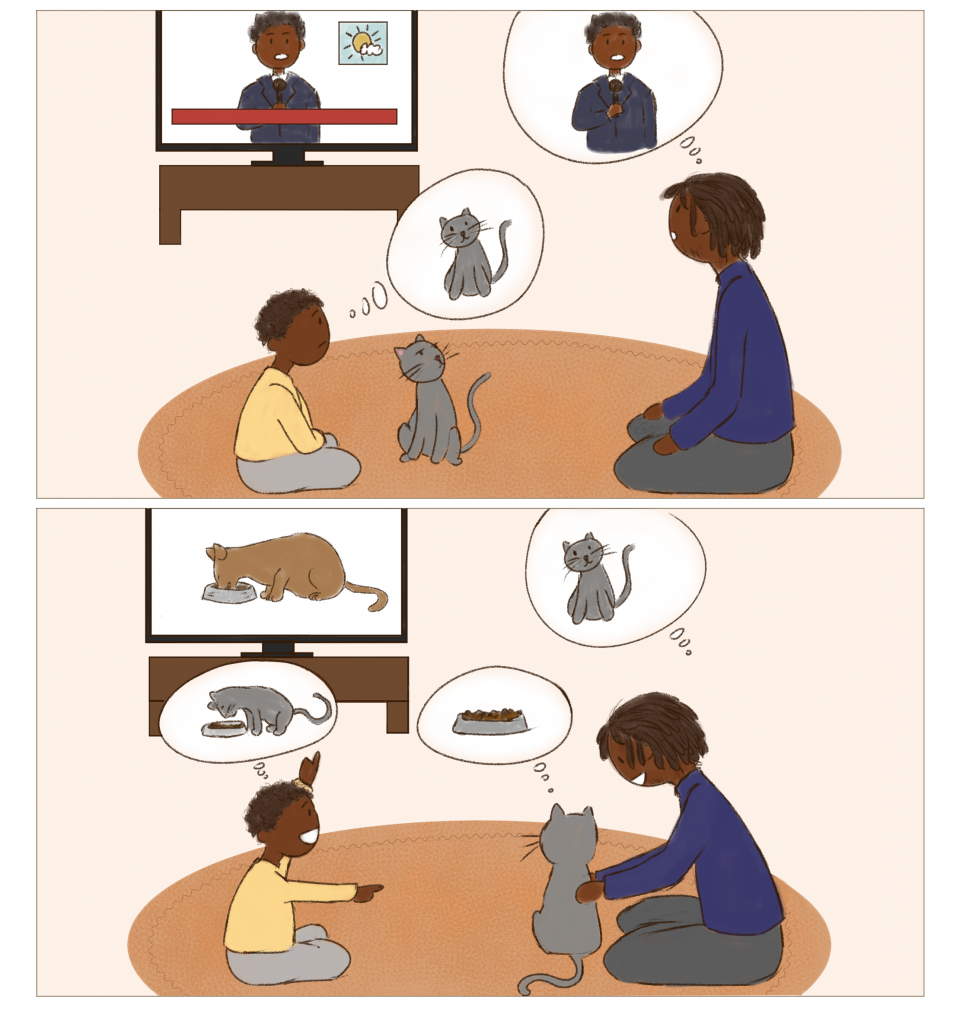Does caregiver’s screen time affect children’s language development?

There is a lot of talk about children’s screen time and possible effects on development. Many countries even publish time limit guidelines. At Kotoboo, we have already written a handful of posts on it (click here to check out our posts on screen time and children). But what about caregivers’ screen time? We, adults, are almost glued to our screens, phones to tablets to computers. It is almost as if we need some screen on all time!
Often, we may just turn on the TV and have it playing in the background. We may even think we barely pay any attention to it. However, studies show that “Background TV”, playing programs directed to adults, is associated with less speech to babies and fewer interactions with babies. For example, caregivers who had the TV on in the background while they were breastfeeding were less likely to repeat certain words than if they had classical music on in the background (see our comic on recast).
Maybe we adults should take a similar approach to screen time that we do for children. Favouring screen time that is interactive is a great start (see our ranking of different types screens)!
The scientific sources of our comic:
